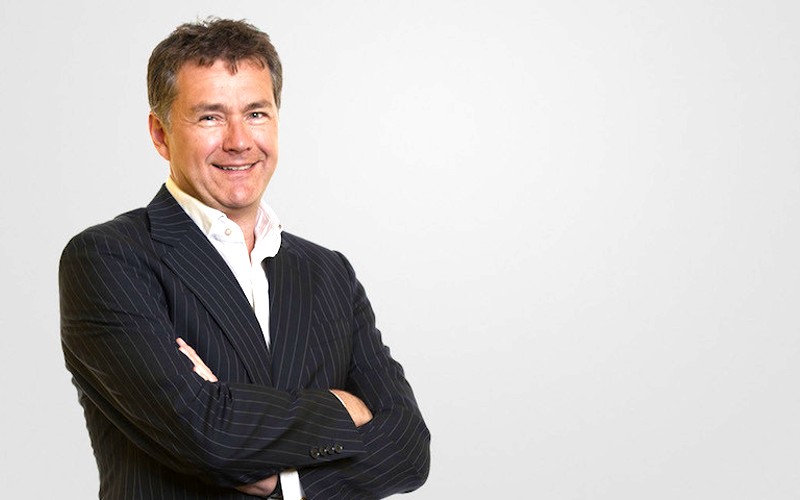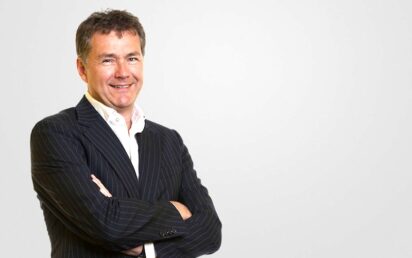Many entrepreneurs dream of the day they will sell their business for a life-changing sum of money.
Going through the sale process can, however, prove nerve-wracking, exhausting and – in many cases – ultimately a fruitless endeavour.
Richard Carter founded Nostrum Group around the turn of the century and successfully sold the business to Equiniti Credit Services four years ago. He says there are several potential landmines which must be navigated to see the transaction over the line.
“Sales fail for a whole variety of reasons – not least because during the process the founders are distracted by the sale rather than running the business. In the period that you’re supposed to be demonstrating growth, your numbers can start to tail off a little bit,” he explains to TechBlast.
“One of the other big problems for entrepreneurs trying to sell their business is they have an exaggerated sense of worth for their business. Everybody talks about the big deals, don’t they? When you see the headlines about the massive multiples being paid, you don’t want to sell too early; you want to hold on for more.
“But it’s all about execution risk – not many of those deals actually happen.”
Execution risk refers to the possibility that a transaction won’t be executed within the range of recent market prices, or the potential problems in restructuring and integrating the business into its new parent organisation.
As such, Carter argues, founders should focus on getting the deal over the line. “The difference of a few million quid on a transaction is immaterial, because the amount of money they’ve got from the sale is life-changing anyway,” he expands.
“If you can go from buying a £10 bottle of wine each week to a £20 bottle, would you pay more than that? There are only so many cars that you can have at home. You can buy a nice house – but what it really gives you is that financial independence to go and do the things that you want to do, rather than being forced into it.
“As an entrepreneur there are lots of things that you miss out on over the course of the period that you’re building the business: I missed children’s birthdays, school events, dinners; I was away three nights a week. So it’s almost like some of that money is compensation for that.”
Carter subsequently served as MD at FTSE250 firm Equiniti – which provides technology and services to banks and other lending institutions – before his exit in September 2021. His earnout came to an end after three years, but he stayed for another year because he enjoyed the role.
On the challenges faced by an entrepreneur post-acquisition, he says: “When we were acquired it was fantastic because we didn’t have to worry about cash anymore. As part of a larger group, you also have many subject matter experts that you can call upon.
“However, the corollary of that is that you no longer have control. We would previously be able to implement something as soon as we walked out of a board meeting; but in a larger corporate, you can’t do that. You have to educate other people to get their buy-in; there are probably governance processes that you have to follow as well. And so that agility, the entrepreneurial spark that you’ve nurtured for a number of years, is really difficult to keep ignited.
“I wouldn’t say that either the small privately held business or one within a corporate is better than the other – it just depends on the circumstances.”
He advises: “If an entrepreneur has an earnout, they need to ensure that they are assimilated within the business. You can’t fight against the tide: you’ve got to recognise that the thing you have developed is now owned by somebody else.
“You’ve sold, you’ve got a pot of gold, you’ve maybe got some more little pots coming – and therefore you have to play by different rules. We all know people who have sold their business and have walked away from the earnout because they can’t put up with corporate life.”
Now an advisory board member at FinTech North, Carter – speaking to TechBlast at the trade body’s Manchester conference late last year – says growing Nostrum Group was difficult in the days before the investment landscape as we know it today existed.
“There was no safety net and it meant spinning so many plates simultaneously: [as a bootstrapped business,] you have to consider where your cash flow is; client satisfaction; recruitment… you’re constantly balancing and very probably in the majority of cases looking at the short term rather than longer term.
“While you’d like to say ‘we want to be in this position in three years’ time’, you’ve got another lens saying ‘we’re going to run out of cash in three months’. We had contradictions in some respects of the strategy: we’d decide to do something but then you realise we couldn’t afford to do it, so that became a bit of a challenge.
“A five-year plan is fundamental to knowing where you want to be and how to get there – but it’s not a straight line. It’s a winding road, a roller coaster: one day I could be driving home and thinking what a brilliant week we’d had, how we were changing the world; and then maybe the very next day everything would be going wrong, with clients having difficulties or losing a key member of staff.
“And so you find yourself back at the bottom of the rollercoaster eager to get back to the top of it.”
Now an angel investor in startups including CIRCA5000 and Bex – formerly known as Tickr and Shush Money respectively – as well as Freeze Debt and Credit Kudos, he says COVID-19 pushed him to take the decision to leave Equiniti.
“Through the pandemic I got a sense that there were other things that I could be doing with my time – other passions that I wanted to fulfil,” he says. “Particularly around financial inclusion, helping people deal with poverty premium, social impact investment.
“You can’t really run a sizable business – £25 million revenue with a couple of hundred people in it – and do that at the same time: you’ve got to be committed to it.”


